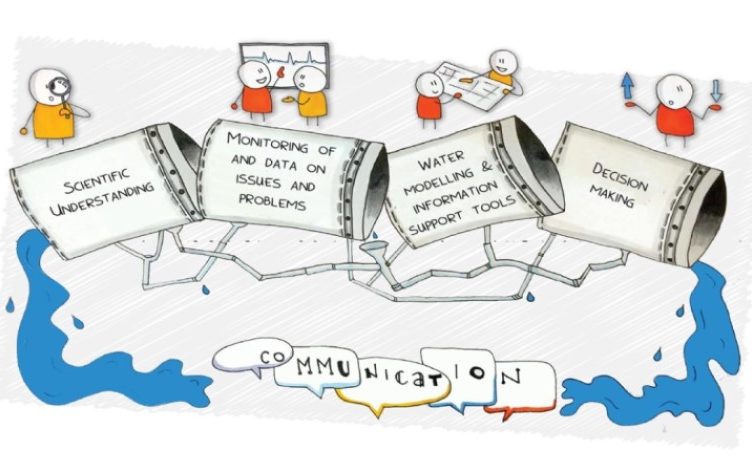
05/12/2024
Event Summary: Overview of water quality modelling projects from the Queensland Water Modelling Network with Callym Dunleavy
Read more
The Queensland Water Modelling Network held it's first face-to-face event for 2024 on 30 May with an excellent turn out from across the water modelling and use sector to consider Ways to Leverage to Climate Change information, hearing from special guests across government, academia and consulting.

The session began with an icebreaker to see where participants sat along the water modelling and use pipeline with no surprises that the majority of attendees work in the strategic decision making end of the pipeline.
Our first presenters from the Department of Energy and Climate – Sarah Chapman and Rohan Eccles – shared the latest developments in a dashboard for Queensland’s New Climate Projections – a valuable resource for understanding climate change impacts in Australia. This dashboard considers the translation of climate projections into climate services to underpin adaptation and preparedness for natural disasters and includes two phases:
• Phase 1: 11 CMIP5 GCMs under 2 RCPs with 10 km of resolution over Queensland.
• Phase 2: 11 CMIP6 GCMs (15 ensembles) under 3 SSPs with 10 km of resolution over Australia.
A small group activity followed to record the climate information needs of participants on the day.

PhD candidate, Cassady Swinbourne from the Australian Centre for Water and Environmental Biotechnology at the University of Queensland was up next sharing the development of her thinking behind how climate change information can inform research: framing questions and direct use in research. Cassady framed the question around her own research considering:

The question “what questions are you wanting to answer?” was then put to all participants who added their thoughts to a catchment transect. Details of participant responses can be found HERE. A short afternoon tea break followed.

Viewable image of What Questions are you wanting to answer?
Richard Sharp from Water Technology presented next on the application of climate change data for local government with examples from Ipswich City Council on flooding, Bundaberg Regional Council on sea level rise, and Warnambool City Council on increasing heat conditions. Details of this presentation can be found by following this link – Climate Hazards: Local Government Examples
The final presentation of the day was provided by Scott Losee, Director at Losee Consulting who discussed ways of Using Climate Change Information in Infrastructure Project Delivery. In this presentation, Scott discussed:


The final activity for the day included a strengths and gaps assessment where attendees where asked to work in small groups to map along a project cycle areas where capability and access to tools is strong and areas for improvement.
Some of the participant responses can be found HERE.
The true value of events like this is not found in the information collected and shared post-event but the strength of relationships and networking developed from showing up and participating. Nibbles and end-of-day drinks where on offer for those that wished to continue these connections. We hope you will join us for our next in-person event soon.

